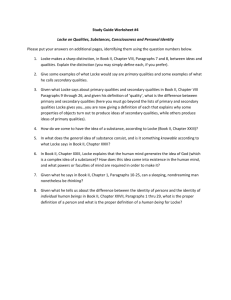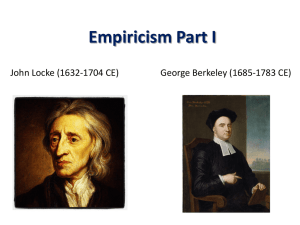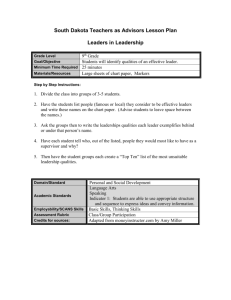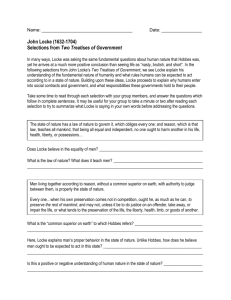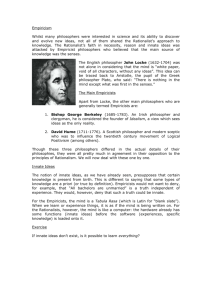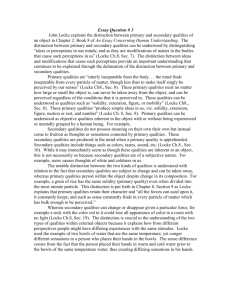The Empiricism of John Locke
advertisement
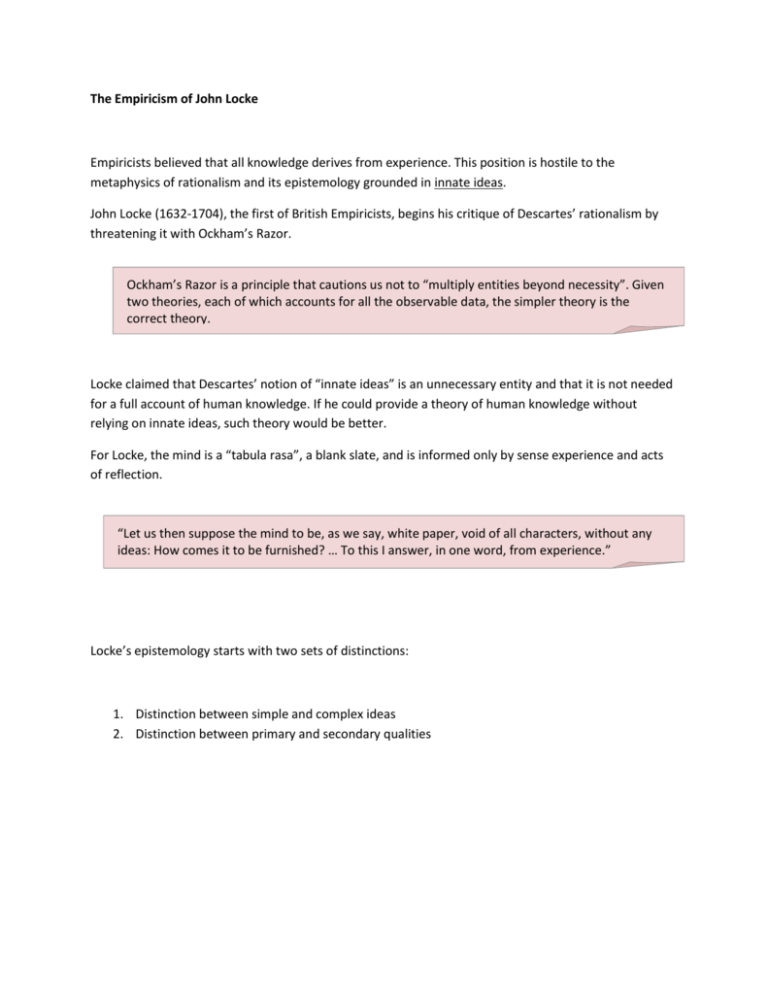
The Empiricism of John Locke Empiricists believed that all knowledge derives from experience. This position is hostile to the metaphysics of rationalism and its epistemology grounded in innate ideas. John Locke (1632-1704), the first of British Empiricists, begins his critique of Descartes’ rationalism by threatening it with Ockham’s Razor. Ockham’s Razor is a principle that cautions us not to “multiply entities beyond necessity”. Given two theories, each of which accounts for all the observable data, the simpler theory is the correct theory. Locke claimed that Descartes’ notion of “innate ideas” is an unnecessary entity and that it is not needed for a full account of human knowledge. If he could provide a theory of human knowledge without relying on innate ideas, such theory would be better. For Locke, the mind is a “tabula rasa”, a blank slate, and is informed only by sense experience and acts of reflection. “Let us then suppose the mind to be, as we say, white paper, void of all characters, without any ideas: How comes it to be furnished? … To this I answer, in one word, from experience.” Locke’s epistemology starts with two sets of distinctions: 1. Distinction between simple and complex ideas 2. Distinction between primary and secondary qualities SIMPLE AND COMPLEX IDEAS Simple Ideas Simple ideas originate in any one sense. They are “simple” since they can’t be broken down into simpler entities. Such ideas include “Sharp”, “Yellow”, “Loud”, “Sour”, “Soft”, etc. These simple ideas are Locke’s primary data, his “psychological atoms”. All knowledge, in one way or another, is built out of them. Example: If a person can’t understand the idea of “yellow”, all we can do is point to something that is yellow and say, “Yellow”. Complex Ideas Complex ideas are combinations of simple ideas. Complex ideas result in our knowledge of: a. Particular things ( “Apple” is derived from the simple ideas “red”, “spherical”, “sweet”, etc.) b. Comparisons (“darker than”, “taller than”) c. Relations (“north of”) d. Abstractions (“gratitude”) – Abstractions, or general ideas, are for Locke particular ideas that stand for collections. This view is called “nominalism” and is based on a thesis that only particulars exist. PRIMARY AND SECONDARY QUALITIES Primary Qualities Primary qualities are characteristics of external objects. They are inherent in those objects. Extension, Shape and Location are examples of primary qualities of objects. Secondary Qualities Examples of secondary qualities: Colors, sounds, tastes. Secondary qualities are not inherent in external objects. They are characteristics that we often attribute to external objects, but only in fact exist in the mind. They are caused by external objects, but do not belong to them. Secondary qualities only exist in the mind. (Like Galileo pointed out, we won’t find “tickle” in the feather!) This view of the mind became known as representative realism. It is the notion that mind represents the external world but does not duplicate it. (Contrast this with naïve realism, the view that the mind literally duplicates external reality.) Representative Realism: Critique of Locke’s representative realism: Mental occurrences (sensations, ideas), according to Locke, have causes outside of themselves. These causes to a certain extent resemble their effects (sensations, ideas in the mind). “But how, consistently with the principles of empiricism, is this to be known? We experience the sensations, but not their causes; our experience will be exactly the same if our sensations arise spontaneously. The belief that sensations have causes, and still more the belief that they resemble their causes, is one which, if maintained, must be maintained on grounds wholly independent of experience.” – B.Russell
